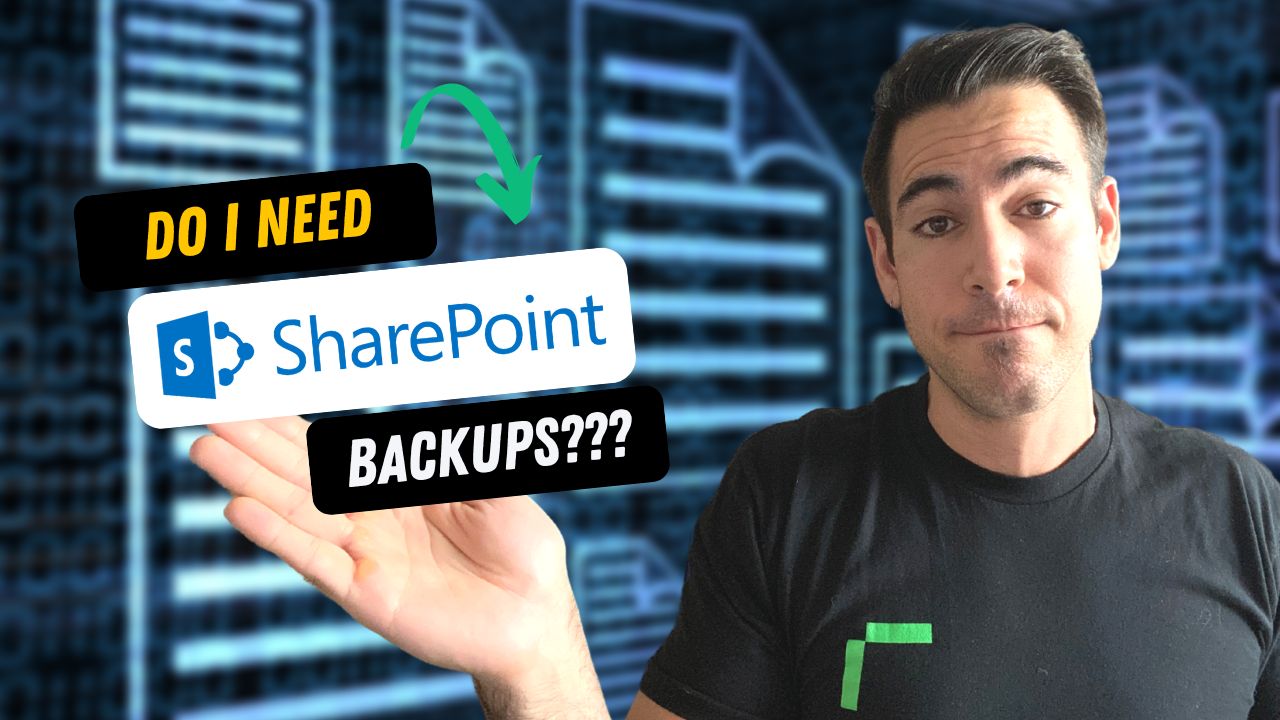Over the last few years, there’s been a dramatic shift in how businesses store data.
More and more companies are dumping their dusty old file servers in favor of the cloud.
But getting rid of your hardware doesn’t mean you can stop worrying about it.
In this article, we’ll tell you why having a backup of your online cloud data isn’t just important – it’s critical.
You are responsible for your own data
The first problem with storing data in the cloud is that you’re relying on someone else to maintain that infrastructure.
The devil is in the details, as they say. And big companies like Microsoft are no exception.
Take a look at Microsoft’s Terms of Service (who reads those things anyway?), specifically under the Service Availability section:
We strive to keep the Services up and running; however, all online services suffer occasional disruptions and outages, and Microsoft is not liable for any disruption or loss you may suffer as a result. In the event of an outage, you may not be able to retrieve Your Content or Data that you’ve stored. We recommend that you regularly backup Your Content and Data that you store on the Services or store using Third-Party Apps and Services.
It doesn’t take a lawyer fluent in legalese to understand what this means.
Yes, you need a backup. Here’s why
While the cloud is relatively safe compared to storing data on-premise, data loss can still happen. The most common reason is human error.
Accidents happen. We all make mistakes. Sometimes a fat finger can result in an important file being overwritten, or even an entire SharePoint library being deleted!
Then there’s the problem of ransomware. Yes, your files in the cloud can be encrypted. It’s a simple as your computer becoming infected and then syncing changes back to the cloud.
So it’s clear you still need a backup if you plan to host your data in the cloud. Now what?
SharePoint Versioning & Recycle Bin
One of the advantages of using SharePoint is its versioning capabilities. If someone makes a change to a file, it can be restored easily using a previous point-in-time version.
Likewise, if a file is deleted, it can be plucked from the Recycle Bin for up to 93 days afterwards (and an additional 93 days by SharePoint administrator).
However, there are a couple of reasons why these capabilities are not suitable as a backup:
- You like to keep backups longer than 107 days, don’t you? Well, that’s all you get with SharePoint.
- What happens if someone overwrites the file? If you guessed “it just makes a new version right?” WRONG. All the version history disappears when the file is overwritten by a new one.
So, although these features are useful, they are definitely not a backup.
Retention Policies
Microsoft’s built-in Retention Policies are useful in organizations that need to retain their data for a set period of time – specifically, in the legal industry where data often needs to be kept for a lifespan of 7 years.
But retention policies don’t protect against someone breaking into your tenant. Even with the best security, if you’re the type of customer to have a retention policy, you’re probably a juicy target.
And Microsoft, sophisticated & spread across the globe as they may be, are not immune to being hacked by a nation state actor or experiencing a disaster of their own (let’s pray this never happens).
The other problem with Retention Policies is they count towards your SharePoint Online storage use. This adds up fast, especially when you are keeping copies of *all* your data for retention purposes.
For these reasons, in general it’s considered best practice to store your data in a separate datacenter / cloud.
The solution: Cloud-to-cloud backups
Now that we’ve gone over all the reasons why you need to back up your online data, you should have a pretty good understanding of just how important it is.
So what’s the solution? The answer is cloud-to-cloud backups. How does that work? It’s exactly what it sounds like:
A cloud to cloud backup keeps a copy of your data with a separate cloud provider, in a separate data center.
There are a number of companies out there who specialize in cloud backup solutions – Leap Cloud Solutions is partnered with Datto (we’ve done our homework over the years, and we think they’re the best).
One of the advantages of a Datto-driven solution is that it allows us to store unlimited snapshots of all your Office 365 services:
- OneDrive
- SharePoint
- Exchange Online mailboxes
- Microsoft Teams
The other reason we like using Datto is because it allows us to restore a snapshot of your data in minutes, not days.
So if you’re looking for a backup solution for Office 365, why not give us a call?





